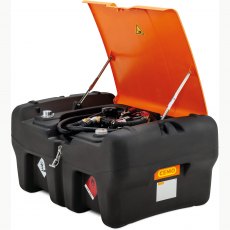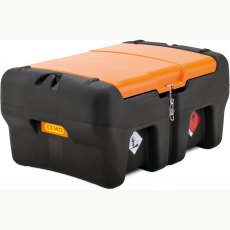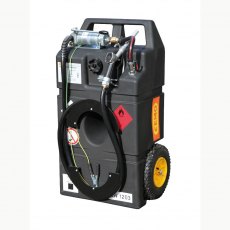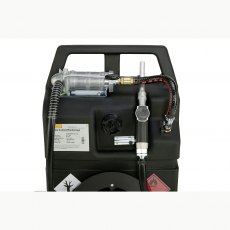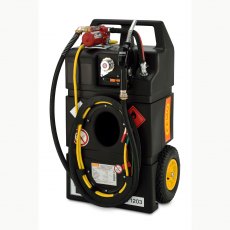How to Store and Transport Petrol Safely in Ireland

Storing petrol, a highly flammable and potentially dangerous substance, requires careful adherence to safety regulations and practices, especially in Ireland where specific legal and environmental standards must be met. This article provides a detailed guide on how to store petrol safely in Ireland, ensuring both personal safety and compliance with local laws.
Understanding the Regulations
In Ireland, the storage and handling of petrol are governed by the Health and Safety Authority (HSA) and local environmental regulations. Key legislation includes:
- Safety, Health and Welfare at Work Act 2005
- Dangerous Substances Act 1972
- Dangerous Substances (Retail and Private Petroleum Stores) Regulations of 1979 (S.I. No. 311 of 1979)
These laws dictate the maximum amount of petrol that can be legally stored by individuals or businesses, safety measures, and the types of containers that must be used.
Legal Storage Limits
For private individuals in Ireland, the legal limit for storing petrol is typically 30 litres. However, for commercial or agricultural purposes, these limits can be higher, and specific permits or storage conditions may be required.
For commercial transport: Commercial transport is governed by the Carriage of Dangerous Goods by Road Regulations (ADR 2009). These regulations set a threshold for the transport of petrol at 333L, at or below which, certain transport provisions do not apply and over this threshold, all legislative provisions apply. This is a complex area and professional advice must be sought.

Choosing the Right Containers
- Approved Containers: Use only containers that are specifically designed for petrol storage. In Ireland, these containers must meet UN or EU standards, like jerrycans made from metal or specially treated plastics. This means plastic petrol containers up to 10 litres in capacity, metal petrol containers up to 20 litres, or demountable fuel tanks up to 30 litres.
- Capacity: Ensure that the containers do not exceed the legal limit of 30 litres for personal use.
- Labeling: Containers should be clearly labeled as containing petrol, along with the capacity and any safety warnings.
Safe Storage Practices
- Location: Store petrol in a well-ventilated area, away from living spaces, and protected from direct sunlight, extreme temperatures, and ignition sources.
- Grounding: Store petrol on a stable, flat surface and in a location where it won't be subject to accidental spills or knocks.
- Security: Ensure that the storage area is secure and inaccessible to children and pets.
- Ventilation: Proper ventilation is crucial to prevent the buildup of petrol fumes, which can be explosive.
- Regular Checks: Regularly inspect the containers for leaks, corrosion, or damage.
Handling Petrol Safely
- No Smoking: Enforce a strict no-smoking policy near stored petrol.
- Using Funnel: When decanting petrol, use a funnel to avoid spills.
- Spill Kit: Keep a spill kit nearby, including absorbent materials and a fire extinguisher rated for petrol fires.
Emergency Preparedness
- Fire Extinguisher: Have a Class B fire extinguisher accessible near the storage area.
- First Aid: Be prepared with a first aid kit and know how to treat chemical burns or inhalation injuries.
- Emergency Numbers: Keep emergency contact numbers, including local fire services, readily available.
Environmental Considerations
- Spill Prevention: Preventing spills is crucial to protect the environment. Use secondary containment like a drip tray.
- Disposal of Petrol: Never dispose of petrol down drains or in the environment. Contact local waste management services for safe disposal options.
Transporting Petrol
Legal basics
Mobile tank stations for diesel fuel and petrol are used in many businesses. The legal basics are governed in the ADR (European Agreement Concerning the International Carriage of Dangerous Goods by Road)
Exemptions in combination with the type of transport, sub-section 1.1.3.1 c) ADR
– Craftsman regulation –
If all exemption prerequisites according to 1.1.3.1 c) ADR are observed, complete exemption is granted in terms of hazardous- goods regulations. In other words, the hazardous-goods regulations are no longer applicable.
This lifts a great burden from agricultural, forestry, landscaping and crafts operations, because they no longer have to use the provisions otherwise applicable to the transport of hazardous goods.
These are:
• use of design-tested packaging
• non-observance of identification and tagging regulations
• exemption from the obligation to carry fire-extinguishing equipment
• exemption from the obligation to carry accompanying documentation (here: carriage document) In practical terms, this arrangement represents a significant easement, because deliveries for direct consumption up to max. 450 litres are exempted from the ADR regulations
Transport for direct consumption means that up to 450 L can be driven to the machine, even in a car. This quantity must not be left there, but must be immediately filled into the consumers' tanks and consumed.
Regular Reviews and Updates
Regularly review and update your petrol storage practices, staying informed about any changes in Irish legislation or safety guidelines.
Safely storing petrol in Ireland requires understanding and adhering to specific legal guidelines, using the right equipment, and following best safety practices. By following these guidelines, you can ensure the safe and legal storage of petrol, protecting both people and the environment. Remember, when in doubt, consult with the Health and Safety Authority or local environmental agencies for guidance specific to your situation.

Oil Tank Regulations

Guide to Choosing the Right Oil Tank

 Login
Login